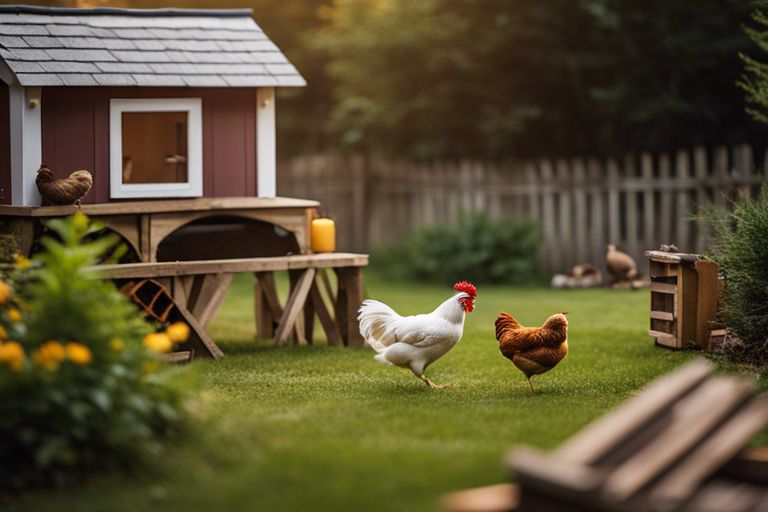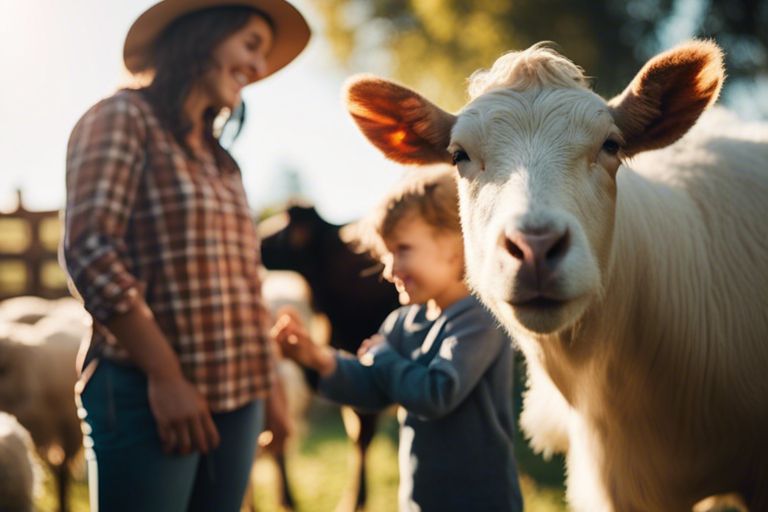Stress-free chickens are happy chickens, and as a responsible poultry owner, it’s crucial to ensure your flock’s well-being. Creating a stress-free environment for your chickens not only improves their quality of life but also contributes to better egg production and overall health. Let’s investigate into some expert tips to keep your feathered friends relaxed, content, and thriving on your homestead.
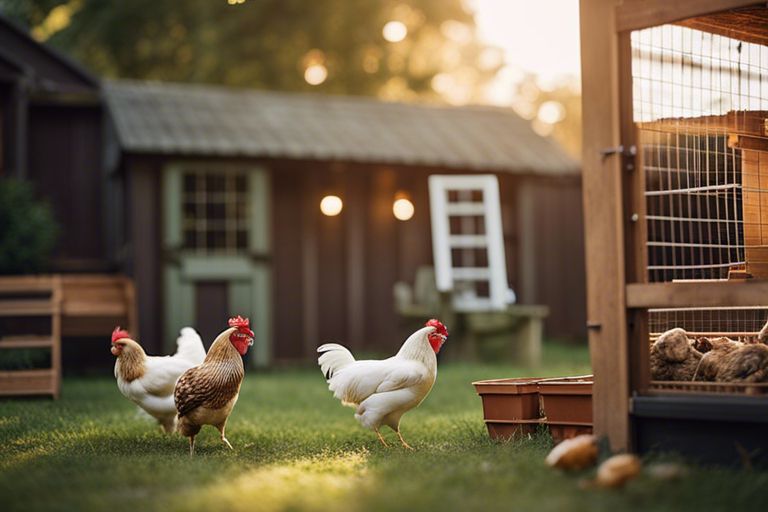
Understanding Chicken Behavior
Signs of Stress in Chickens
For chickens, stress can manifest in various ways. Look out for feathers being plucked out, decreased egg production, excessive vocalization, aggression towards other flock members, lethargy, and decreased appetite. These signs indicate that your chickens are not feeling their best and that changes need to be made to ensure their well-being.
Natural Behaviors of Happy Chickens
One of the key natural behaviors of happy chickens is scratching and pecking. Chickens love to forage for insects, seeds, and plants in the soil, which not only provides them with mental stimulation but also a nutritious diet. Dust bathing is another crucial behavior where chickens create a shallow depression in the ground and cover themselves in dust to help keep their feathers clean and free from parasites.
Understanding the natural behaviors of happy chickens is imperative for their overall happiness and well-being. By allowing chickens to express their natural instincts such as scratching, pecking, dust bathing, and roosting, you are creating an environment that promotes their mental and physical health. Observing and catering to these natural behaviors will ensure a content and stress-free flock of chickens.
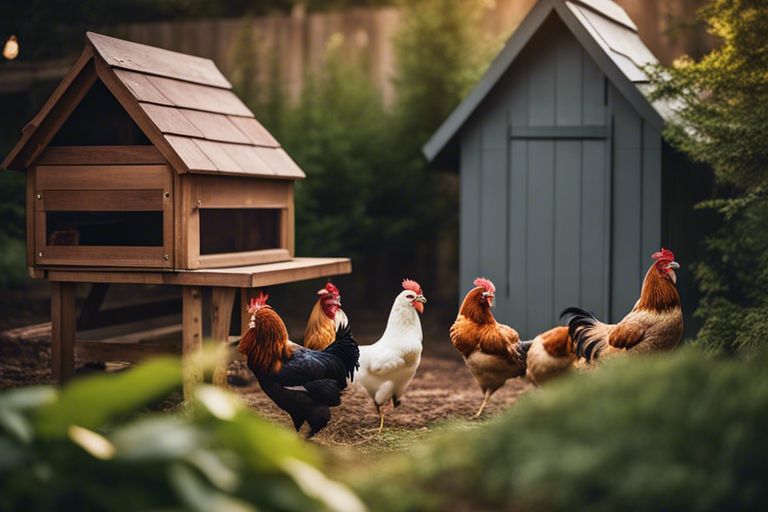
Creating a Safe and Comfortable Environment
Coop Design and Maintenance
Creating a stress-free environment for your chickens starts with a well-designed and properly maintained coop. Ensure that the coop is spacious enough for your flock to move around comfortably, with separate areas for nesting, roosting, and feeding. Regularly clean the coop, replace bedding, and provide adequate ventilation to prevent the build-up of ammonia and bacteria that can cause respiratory issues.
Predator Protection and Safety Measures
The safety of your flock is paramount when it comes to keeping them stress-free. Predators such as foxes, raccoons, and birds of prey pose a threat to chickens. To protect your flock, make sure the coop is predator-proof by using sturdy wire mesh, burying it at least 12 inches underground to prevent digging, and securing all openings with locks or latches.
For instance, installing motion-activated lights or sound devices near the coop can deter nocturnal predators from approaching. Regularly check for any signs of attempted breaches and promptly repair any damages to keep your chickens safe and secure.
Health and Nutrition
Proper Feeding for Optimal Health
There’s nothing more important for the well-being of your chickens than proper nutrition. A balanced diet is imperative for optimal health and egg production. Ensure your flock has access to a high-quality poultry feed that is specifically formulated for their needs. Additionally, supplement their diet with fresh fruits, vegetables, and treats in moderation to keep them happy and healthy.
Preventive Health Care and Regular Check-ups
Proper preventive health care is key to keeping your flock stress-free and thriving. Regular check-ups with a poultry veterinarian can help identify any health issues early on and prevent potential outbreaks. Vaccinations, parasite control, and routine examinations are imperative components of preventive care to ensure the long-term health of your chickens.
The health of your chickens should not be taken lightly. Regular check-ups and preventive care can save you time, money, and potentially the lives of your beloved flock members. Stay proactive in maintaining their health to ensure they lead happy and stress-free lives.
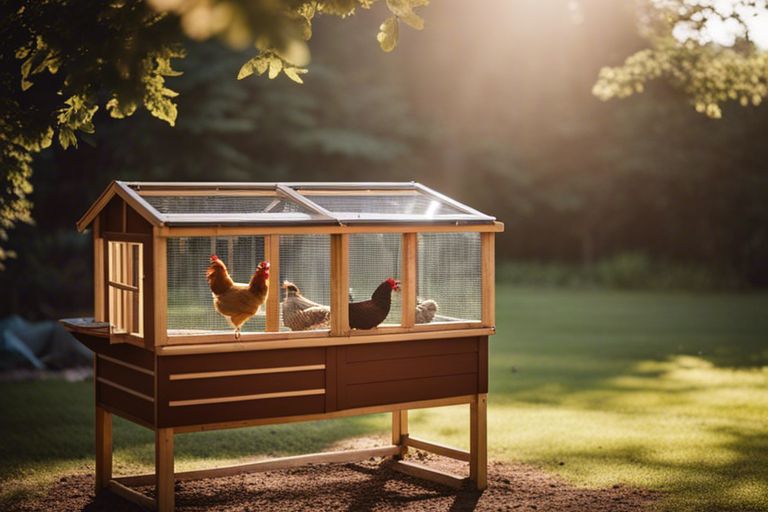
The Importance of Social Structure
Pecking Order Dynamics
For a flock of chickens, establishing a pecking order is vital for maintaining social harmony. Chickens have a hierarchical structure where each bird knows its place in the group. The pecking order is not just about aggression; it helps in reducing conflicts and ensuring that resources such as food and nesting spaces are distributed fairly among the flock.
Integrating New Birds into the Flock
Order is crucial when introducing new chickens to an existing flock. This process can be stressful for both the new and existing members as they establish a new social structure. It’s vital to introduce new birds gradually, allowing them time to get acquainted with each other without causing disruptions in the established pecking order. Monitoring their interactions and providing enough space and resources can help ease the integration process.
Social interactions play a significant role in maintaining a stress-free flock. Chickens are social animals that thrive on the company of their flockmates. Ensuring a harmonious social structure within the group can reduce tensions, promote overall well-being, and lead to happier and healthier chickens.
Enrichment and Pastime Activities
Providing Diverse Foraging Opportunities
To keep your chickens engaged and stress-free, it is crucial to provide a variety of foraging opportunities. Scatter scratch grains in the yard for them to peck at, hang a cabbage or other treats from a string for them to jump and peck at, or create a compost pile they can scratch through for bugs and other treats. By offering diverse foraging activities, you not only keep your chickens entertained but also help them exhibit their natural behaviors.
Toys and Boredom Busters for Chickens
Any responsible chicken owner knows the importance of keeping their flock stimulated and entertained. Toys and boredom busters can play a crucial role in achieving this. Consider providing hanging mirror balls, treat-dispensing balls, or even simple objects like a plastic bottle filled with scratch grains. These toys can keep your chickens mentally engaged and physically active, preventing boredom and stress.
The key to choosing the right toys for your chickens is to make sure they are safe, sturdy, and suitable for their size. Avoid small objects that could be ingested and potentially harm your chickens. Rotate their toys regularly to maintain their interest, and always supervise their playtime to ensure their safety.
To wrap up
Presently, keeping your flock stress-free is crucial for their overall well-being and productivity. By providing a comfortable and safe environment, offering a balanced diet, ensuring proper hydration, maintaining cleanliness, allowing space for exercise, and minimizing disturbances, you can significantly reduce stress levels in your chickens. Happy chickens lead to healthier birds, better egg production, and a more harmonious coop environment. By following these tips for happy chickens, you are investing in the long-term health and happiness of your flock. Keep in mind, a stress-free chicken is a happy chicken!
FAQ
Q: Why is it important to keep your flock stress-free?
A: It is important to keep your flock stress-free to ensure the overall health and well-being of your chickens. Stress can lead to decreased egg production, weakened immune systems, and even aggressive behavior.
Q: What are some signs that indicate my chickens are stressed?
A: Some common signs of stress in chickens include decreased egg production, feather picking, increased aggression, excessive vocalization, and a decrease in overall activity.
Q: How can I reduce stress in my flock?
A: To reduce stress in your flock, provide a clean and comfortable living environment, ensure they have access to fresh water and feed, maintain a consistent routine, and minimize sudden changes in their environment.
Q: Can environmental factors contribute to stress in chickens?
A: Yes, environmental factors such as overcrowding, extreme temperatures, poor ventilation, loud noises, and predator presence can all contribute to stress in chickens.
Q: Are there any natural remedies to help keep my flock stress-free?
A: Yes, incorporating herbs like lavender and chamomile into their environment, providing opportunities for dust bathing, and offering natural perches and hiding spots can help reduce stress in your flock.
Q: How important is social interaction for chickens?
A: Chickens are social animals that thrive on interaction with their flock mates. Providing opportunities for socialization through free-ranging, roosting together, and engaging in natural behaviors can help reduce stress and promote overall well-being.
Q: What should I do if I suspect one of my chickens is stressed?
A: If you suspect one of your chickens is stressed, isolate the affected bird to prevent further stress from spreading to the rest of the flock. Provide a quiet and comfortable environment, observe their behavior closely, and consult with a veterinarian if necessary.
